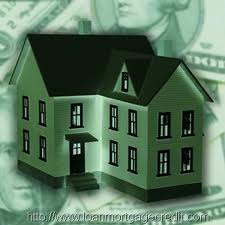 (Washington Post) -- Are some appraisers failing to see the improvements in real estate values underway in local markets that have recently bottomed out and turned positive? When multiple bids push a house price thousands of dollars above what the seller is asking — not unusual in neighborhoods where demand is particularly robust — are appraisers still coming in with values below the agreed-upon contract number?
(Washington Post) -- Are some appraisers failing to see the improvements in real estate values underway in local markets that have recently bottomed out and turned positive? When multiple bids push a house price thousands of dollars above what the seller is asking — not unusual in neighborhoods where demand is particularly robust — are appraisers still coming in with values below the agreed-upon contract number?
Yes. Growing numbers of mortgage loan officers and realty agents say appraiser reluctance to report local appreciation is becoming a significant complication in sales transactions. In a new poll of its members, the National Association of Realtors found that 33 percent of them reported appraisal problems during the month of May. Moe Veissi, president of the association, said poor appraising “in markets that are no longer in decline is the single most important” valuation obstacle “to seeing a real recovery.”
Even appraisal experts concede this is a troubling issue. Frank Gregoire, former chairman of the Florida Real Estate Appraisal Board and an appraiser in St. Petersburg, says that many appraisers are reluctant to make the upward adjustments they know to be justified by recent positive appreciation trends because they fear criticism that they are potentially overvaluing the property — exposing lender clients to costly “buy-back” demands by Fannie Mae or Freddie Mac, or to future litigation.
“Even if they have the [local] data to support” adjustments reflecting positive trends that affect value — pending home sales and new listings of similar houses at higher prices, for example — “they take the easy way out” and go with a lower valuation so as not to upset hyper-cautious reviewers at the appraisal management companies that now control the bulk of all home real estate appraisal assignments, Gregoire said in an interview.



